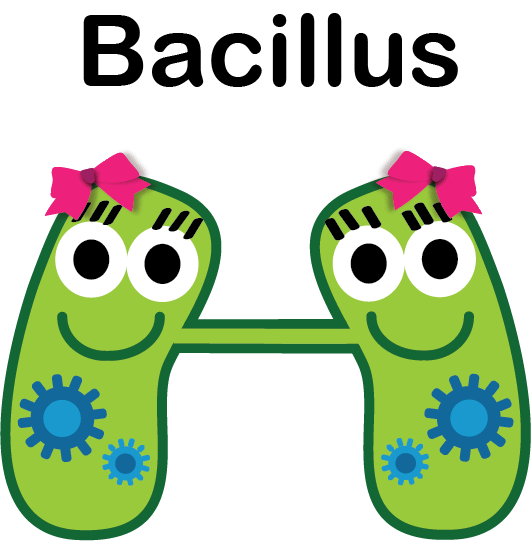Team:UNAM Genomics Mexico/Results/Bacillus
From 2012.igem.org
| (2 intermediate revisions not shown) | |||
| Line 1: | Line 1: | ||
{{:Template:Team:UNAM_Genomics_Mexico/webhtml| content= | {{:Template:Team:UNAM_Genomics_Mexico/webhtml| content= | ||
| - | + | __NOTOC__ | |
<br /> | <br /> | ||
<center><h1>'''Bacillus subtilis Results'''</h1></center> | <center><h1>'''Bacillus subtilis Results'''</h1></center> | ||
| Line 6: | Line 6: | ||
<br /> | <br /> | ||
| - | We know that everybody has wetlab problems, just like us. | + | We know that everybody has wetlab problems, just like us. We actually spent most of the summer trying to standardize the Bacillus subtilis transformation protocol, and we did it! So we are presenting you our new standardization: |
<br /> | <br /> | ||
<br /> | <br /> | ||
| Line 25: | Line 25: | ||
<br /> | <br /> | ||
<br /> | <br /> | ||
| - | [[Team:UNAM_Genomics_Mexico/Notebook/Protocols#Escherichia_coli_MC1061_heat_shock_transformation_protocol | '''Two-step Bacillus subtilis transformation procedure''']]Please click this link to see the complete protocol in our notebook protocols | + | [[Team:UNAM_Genomics_Mexico/Notebook/Protocols#Escherichia_coli_MC1061_heat_shock_transformation_protocol | '''Two-step Bacillus subtilis transformation procedure''']]Please click this link to see the complete protocol in our notebook protocols. |
<br /> | <br /> | ||
<br /> | <br /> | ||
| Line 41: | Line 41: | ||
<br /> | <br /> | ||
<br /> | <br /> | ||
| - | We | + | We noticed that not only do you need a plasmid to transform into ''B. subtilis'', but a plasmid that has formed multimers in a ''RecA+ E. coli'' and should be flanked by AmyE 5' & 3', so that when the plasmid is transformed into ''Bacillus'', it is not degraded, and it integrates into the genome. |
<br /> | <br /> | ||
<br /> | <br /> | ||
| - | '''We | + | '''We transformed the 97 promoter plasmid (Complete Heavy Metal AND) to the MC1061 RecA+ ''E. coli'' cells. Afterwards, we transformed them again in the PY79 ''Bacillus subtilis'' strain and we integrated them successfully to the genome with a double recombination with the AmyE sequences.''' |
<br /> | <br /> | ||
<br /> | <br /> | ||
| Line 56: | Line 56: | ||
<br /> | <br /> | ||
<br /> | <br /> | ||
| - | ::::::::::::::::::::::::::::::::::::::[[File:UnamgenomcisUp.png|right | 120px |link=Team:UNAM_Genomics_Mexico/ | + | ::::::::::::::::::::::::::::::::::::::[[File:UnamgenomcisUp.png|right | 120px |link=Team:UNAM_Genomics_Mexico/Results/Bacillus#Bacillus_subtilis_Results]] |
'''Please see our wetlab notebook in the clicking the following image:'''<br /><br /> | '''Please see our wetlab notebook in the clicking the following image:'''<br /><br /> | ||
Latest revision as of 07:31, 26 October 2012

Bacillus subtilis Results
We know that everybody has wetlab problems, just like us. We actually spent most of the summer trying to standardize the Bacillus subtilis transformation protocol, and we did it! So we are presenting you our new standardization:
Escherichia coli MC1061 competent cells protocol Please click this link to see the complete protocol in our notebook protocols
Two-step Bacillus subtilis transformation procedurePlease click this link to see the complete protocol in our notebook protocols.
We noticed that not only do you need a plasmid to transform into B. subtilis, but a plasmid that has formed multimers in a RecA+ E. coli and should be flanked by AmyE 5' & 3', so that when the plasmid is transformed into Bacillus, it is not degraded, and it integrates into the genome.
We transformed the 97 promoter plasmid (Complete Heavy Metal AND) to the MC1061 RecA+ E. coli cells. Afterwards, we transformed them again in the PY79 Bacillus subtilis strain and we integrated them successfully to the genome with a double recombination with the AmyE sequences.
 Bacillus subtilis genome integration success !!! |
Please see our wetlab notebook in the clicking the following image:
 Bacillus subtilis Notebook |
 "
"







